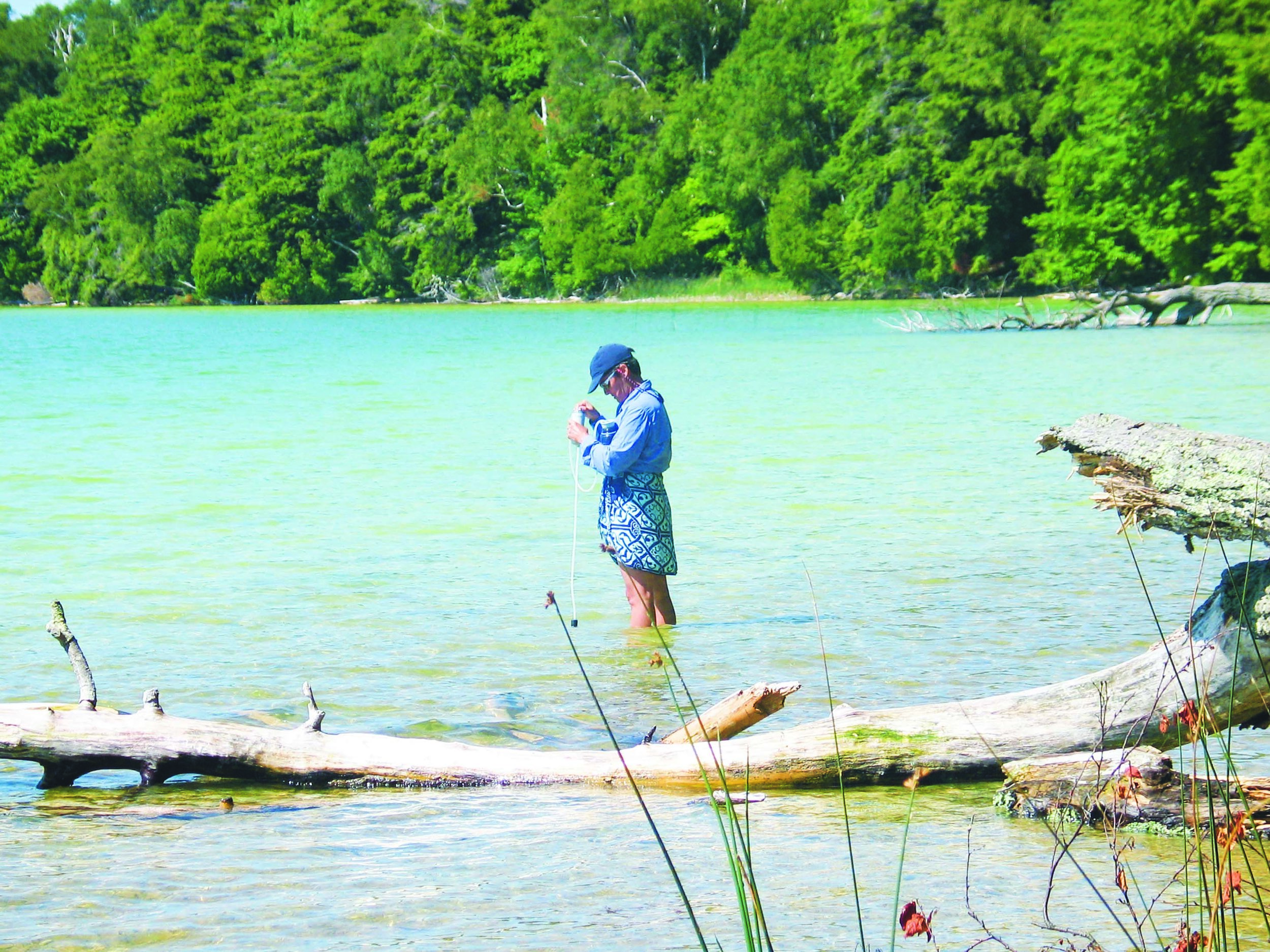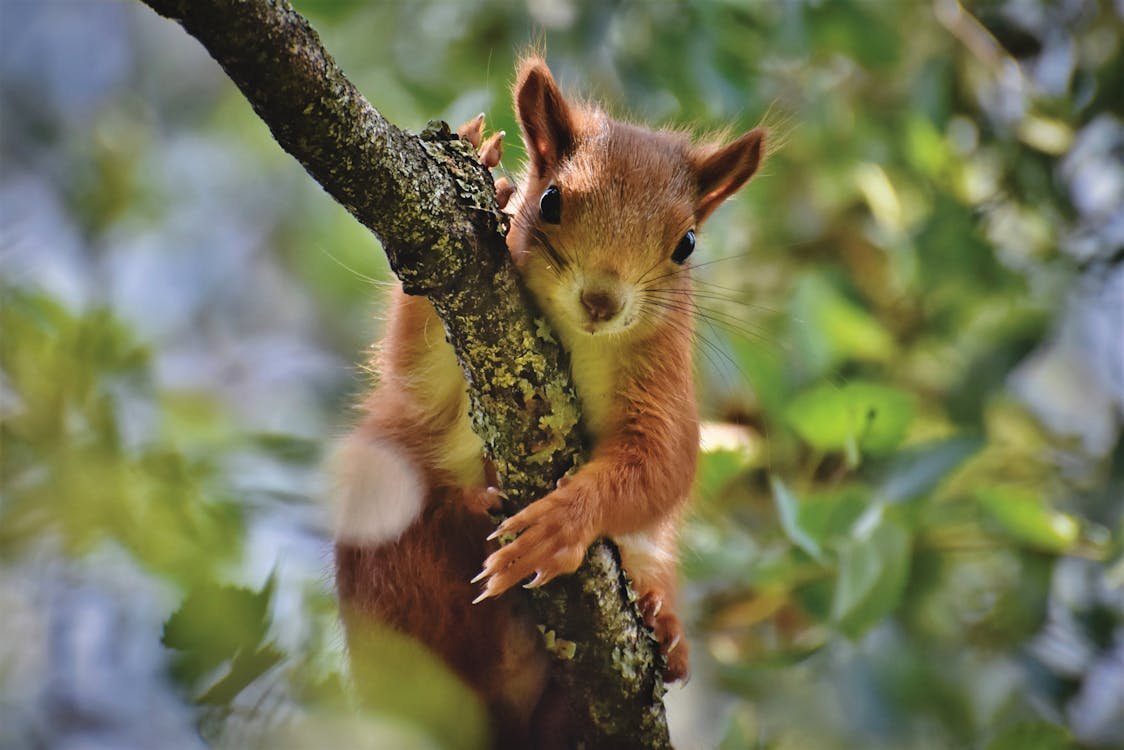by Debbie Wollard
In my daily life, I have a rhythm that goes something like this: Wake up. Eat. Do some yoga. Work. Eat again. Work a bit more. Sleep. Repeat. There are some weeks where I am on autopilot, and miss the daily miracles and surprises. If my life becomes a rhythm of hour after hour, day after day, week after week of busyness like this, with no play and no time outdoors, I begin to lose perspective.
This loss of perspective manifests in emotional ways, physical ways, and spiritual ways. I get irritable. My breathing becomes shallower. I go into a bit of “fight or flight” mode. My vision, dreams, and aspirations become narrowed. I feel alone. When all of this starts to happen, I know that I need the wilderness – I need to get outside!
An important component for experiencing spirituality in the wilderness is to take times of quiet – to listen to my body, to my heart, to my soul, and to the Source that created it all. The profound nature of silence in the midst of the cacophony of life is essential if I hope to regain perspective and remember a sense of connection. When I’m quiet, when I slow down and open myself to the universe, then I can feel the deep connections with trees, animals, rocks, and other people – they feel like teachers or ancestors to me. I might miss these profound experiences if I always move through life at a clip, forgetting to slow down and pay attention.
I have a friend who works at a large University. She is in her office, or in the classroom teaching, A LOT. Like many of us, there are days she is inside hour after hour after hour. Fortunately, she has discovered a small green space not far from her office, with a particular tree that helps her reconnect and get grounded. She visits this tree regularly, sometimes for only five minutes, and sometimes for her whole lunch period. After each visit, she feels more connected and like she spent time with a “wise one.” If we take the moments we can, to get outside and connect with nature, it can have profound and lasting affects.
There are now studies that show there are physiological benefits to being outside (look up “forest bathing” and “grounding”). My friend would certainly attest to that, and I have felt these undeniable physiological benefits too from each wilderness outing no matter the length. The benefit that has the most lasting, perspective-shifting impact for me is the spiritual shift.
Sometimes all that I have time for is a few moments in my yard, sitting by the pond, or a short hike at a local park. Some days that is the best I can do, and I know that is better than not getting outside at all. However, the ideal wilderness “reboot” for me is a visit to North Manitou Island for a weeklong backpacking trip with a community of women. I’ve been taking these trips for over 14 years now and it has become essential to keeping my life balanced and in perspective.
I have come to think of these trips in thirds. The first third is the preparation and anticipation of the journey – what I read, what I notice, what I dream, how I pack, are all included in the preparation phase. On a trip to North Manitou, I take only a backpack, which simplifies my personal belongings to about 35 pounds of equipment for the week. As I pack – I take care to pay attention to the weight (both physical and emotional) that I want to carry for the week – the metaphorical contemplation of what I choose to bring along is not lost on me. “Only take the essentials,” I remind myself. The process of preparing to go into the wilderness in itself is a spiritual practice.
The second third is the actual trip itself – being welcomed by this sacred space; choosing a location to make my “home” for the week; the shift to “island time” all begin the opening process of this wilderness time. These trips are dotted with simple moments of pause, reflection, awe, and wonder. Once I’m on the island, it takes me a few days to fully remember how little I need to be comfortable, satisfied, and fed. I also remember that, often, some of my busyness is just a made-up distraction from the very connection I long for the most. Once I slow down, and remember that I am a spiritual being seeking connection, meaning, purpose, and love, and that these things can come from simplifying, slowing down, and listening, a deep sense of gratitude happens. This sense of gratitude broadens my vision, opens up my dreams, and fills me with hope again.
Being on North Manitou (or on a hike in the park or a spot by my pond) lets me hear the bird song, feel the warm breeze, smell the warm pine needles, rest on the moss at the base of a tree, and see the stars in the sky. Fully experiencing these moments lets a special type of awareness rise up, and I feel connected to all that is and – you guessed it – a higher sense of gratitude follows. An hour by the pond or five days on the island all let my breathing deepen, and my adrenal glands (which control the fight-or-flight response) relax and take a well-deserved break.
The ideal wilderness trip of going to an island also gives a distinct and literal separation from all of the busyness left behind on the mainland. I choose, as I board the ferry that takes me to the island, what I will set down for now, knowing full well that it will be waiting for me when I return, and I can choose then whether to pick it up again… or not.
The other special gift of an island wilderness trip is that I give myself permission to tell time differently. I leave my watch behind. If I am hungry, it is time to eat; if I am tired, it is time to rest; if I am restless, it is time to move. With this way of telling time that I call Kairos time (not my phrase, but I like it, so I use it), there is no watch involved. It takes a day or two to make this shift and be comfortable with Kairos time, but once that shift happens – WOW! My breathing really deepens. I don’t feel rushed. I take long periods for sacred silence, with intentionality, expecting a spiritual encounter with animal messengers, or waking visions, or dreams, or in a simple encounter with a tree or rock or another person. The spiritual experiences are simple, and profound, sometimes playful, and almost always surprising.
The final third is the post-journey integration of the learning experienced. This last third is as important as the first two-thirds, because reflecting on and integrating our experiences, is the best way to learn from insights gained in the wilderness. Before I leave the island, I note and remember the moments that were most powerful or meaningful for me. By doing so, I mark those moments so that I can call them up when my life gets full and somewhat overwhelming. I can choose a “Manitou Moment” to ground and center myself again. I also think about how I will share the story of my experience. I consider one word that is a truth about my experience. Then I think about one sentence that is true about my experience. I have made the commitment to always be honest and to not diminish the telling of my wilderness times when sharing with others. In this way, the meaning and power that I experience remains in tact and has lasting positive impact for my ongoing life.
Five minutes or five days, finding spiritualism in the wilderness is more about the intention than the duration – about remembering that we are connected to everything and everything is connected to us. In this way, we can remember that we are never alone.
Finding spirituality in the Wilderness is a simple (not to be confused with easy) practice of slowing down, being open, quieting in order to listen, expecting the surprises that will arrive, and then feeling gratitude for the things that connect us with the whole of creation. I wish for everyone to find ways to remember these connections and to feel deep gratitude for these connections, for these teachers, for these companions on the way. Just a few moments like this can dramatically shift your perspective, and give you more resilience for life events. May your wilderness times be rich and restorative.
Debbie Wollard, LMT is a licensed massage therapist and Reiki practitioner as well as a guide for women’s wilderness trips. She also works as a conference administrator for wellness conferences around the country and as an executive assistant at an Ann Arbor property management company. She considers her life to have been one big spiritual journey, exploring many different expressions of spirituality. She feels most connected and centered in nature and feels her bodywork practice and her work with women in the wilderness are two of the most satisfying parts of her life. You may contact Debbie by email at dmwollard@icloud.com. or visit womensspiritualityproject.wordpress.com.
Related Content:
































































































































































































Today, I am joined by three representatives of these secretive hidden peoples. Will you introduce yourselves, please?